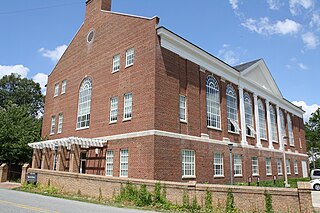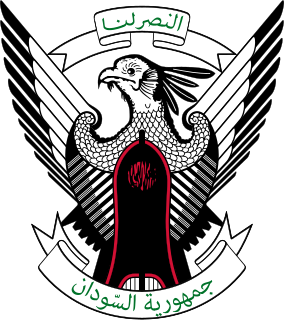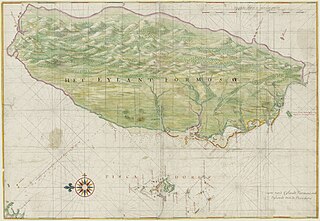 W
WGeneral elections were held in East Germany on 18 March 1990. It was the only free and fair parliamentary election in the history of the country, the first multi-party elections held in Eastern Germany since March 1933, and the first free and fair election held in that part of Germany since November 1932.
 W
WGeneral elections were held in South Africa between 26 and 29 April 1994. The elections were the first in which citizens of all races were allowed to take part, and were therefore also the first held with universal suffrage. The election was conducted under the direction of the Independent Electoral Commission (IEC), and marked the culmination of the four-year process that ended apartheid.
 W
WThe Carnation Revolution, also known as the 25 April, was initially a 25 April 1974 military coup in Lisbon which overthrew the authoritarian Estado Novo regime, producing fundamental social, economic, territorial, demographic and political changes through the Processo Revolucionário Em Curso, resulting in the Portuguese transition to democracy, and the end of the Portuguese Colonial War.
 W
WThe Center for the Study of Democracy is a research and education institute at St. Mary's College of Maryland that focuses on the study of the history of emerging democracy in St. Mary's City, Maryland, the site of Maryland'a first colonial capital and the location of many firsts in the development of democratic rights in North America; this work is done in conjunction with studies of modern democracies.
 W
WThe Committee Representing Pyidaungsu Hluttaw is a Burmese legislative body in exile, representing a group of National League for Democracy lawmakers ousted in the 2021 Myanmar coup d'état. The Committee consists of 17 members of the Pyithu Hluttaw and Amyotha Hluttaw.
 W
WThe Coordination Council for the Transfer of Power, known often as the Coordination Council, is a Belarusian non-governmental body created by presidential candidate Sviatlana Tsikhanouskaya to facilitate a democratic transfer of power. The Council, founded during the 2020 Belarusian protests in response to the disputed 2020 Belarusian presidential election, has 64 core members with a 7-member leadership presidium. The first meeting of the Council took place on 18 August. From late August to mid-October, Tsikhanouskaya and several of the presidium members were arrested or chose to exile themselves from Belarus, fearing repression by Belarusian security forces.
 W
WA democratic intervention is a military intervention by external forces with the aim of assisting democratization of the country where the intervention takes place. Examples include intervention in Afghanistan and Iraq. Democratic intervention has occurred throughout the mid-twentieth century, as evidenced in Japan and Germany after World War II, where democracies were imposed by military intervention.
 W
WDenazification was an Allied initiative to rid German and Austrian society, culture, press, economy, judiciary, and politics of the Nazi ideology following the Second World War. It was carried out by removing those who had been Nazi Party or SS members from positions of power and influence and by disbanding or rendering impotent the organizations associated with Nazism. The program of denazification was launched after the end of the war and was solidified by the Potsdam Agreement in August 1945.
 W
WEuromaidan was a wave of demonstrations and civil unrest in Ukraine, which began on the night of 21 November 2013 with public protests in Maidan Nezalezhnosti in Kyiv. The protests were sparked by the Ukrainian government's decision to suspend the signing of an association agreement with the European Union, instead choosing closer ties to Russia and the Eurasian Economic Union. The scope of the protests soon widened, with calls for the resignation of President Viktor Yanukovych and his government. The protests were fueled by the perception of "widespread government corruption", "abuse of power", and "violation of human rights in Ukraine". Transparency International named President Yanukovych as the top example of corruption in the world. The situation escalated after the violent dispersal of protesters on 30 November, leading to many more protesters joining. The protests led to the 2014 Ukrainian revolution.
 W
WThe International Centre for Democratic Transition (ICDT) is a non-profit organization based in Budapest, Hungary which collects the experiences of recent democratic transitions and shares them with those who are determined to follow that same path. Instead of promoting democracy in general, the ICDT sets more concrete and pragmatic goals. The Centre strives to show how dozens of young democracies have made and are making the transition, so that those who set off on this difficult journey from dictatorship to democracy in the future may learn from the successes as well as from the failures. It was founded in 2005.
 W
WThe National Unity Government of the Republic of the Union of Myanmar is a Burmese government in exile formed by the Committee Representing Pyidaungsu Hluttaw, a group of elected lawmakers ousted in the 2021 Myanmar coup d'état. It includes representatives of the National League for Democracy, ethnic minority insurgent groups, and various minor parties. The State Administration Council—the country's ruling military junta—has declared the NUG illegal.
 W
WThe overthrow of the Roman monarchy, a political revolution in ancient Rome, took place around 509 BC and resulted in the expulsion of the last king of Rome, Lucius Tarquinius Superbus, and the establishment of the Roman Republic.
 W
WThe Polish Round Table Talks took place in Warsaw, Poland from 6 February to 5 April 1989. The government initiated talks with the banned trade union Solidarność and other opposition groups in an attempt to defuse growing social unrest.
 W
WRevolution on Granite was a student protest campaign that took place in Kyiv, Ukraine, in October 1990. Ukraine was then the Ukrainian SSR, part of the Soviet Union until its declaration of independence from the Soviet Union on 24 August 1991. The protest was held from 2 October until 17 October 1990. One of the students' demands was the resignation of the Chairman of the Council of Ministers of the Ukrainian SSR Vitaliy Masol. On the last day of the protests Masol was forced to resign and was replaced by Vitold Fokin.
 W
WSocialism with a human face was a slogan referred to programme of Alexander Dubček and his colleagues agreed at the Presidium of the Communist Party of Czechoslovakia in April 1968, after he became chairman of the Party in January 1968. The first author of this slogan was Radovan Richta. It was a process of mild democratization and political liberalization that sought to build an advanced socialist society that valued democratic Czechoslovakian tradition. It would still enable the Communist Party to maintain real power. It initiated the Prague Spring which, on the night of 20-21 August 1968, was stopped by the Warsaw Pact invasion of Czechoslovakia.
 W
WThe 2019–2024 Sudanese transition to democracy is an ongoing democratic transition in Sudan that began in July 2019.
 W
WAs a result of the surrender of Japan at the end of World War II, the island of Taiwan was placed under the governance of the Republic of China (ROC), ruled by the Kuomintang (KMT), on 25 October 1945. Following the February 28 massacre in 1947, martial law was declared in 1949 by the Governor of Taiwan Province, Chen Cheng, and the ROC Ministry of National Defense. Following the end of the Chinese Civil War in 1949, the ROC government retreated from the mainland as the Communists proclaimed the establishment of the People's Republic of China. The KMT retreated to Taiwan and declared Taipei the temporary capital of the ROC. For many years, the ROC and PRC each continued to claim in the diplomatic arena to be the sole legitimate government of "China". In 1971, the United Nations expelled the ROC and replaced it with the PRC.
 W
WThe Velvet Revolution or Gentle Revolution was a non-violent transition of power in what was then Czechoslovakia, occurring from 17 November to 29 December 1989. Popular demonstrations against the one-party government of the Communist Party of Czechoslovakia included students and older dissidents. The result was the end of 41 years of one-party rule in Czechoslovakia, and the subsequent dismantling of the command economy and conversion to a parliamentary republic.